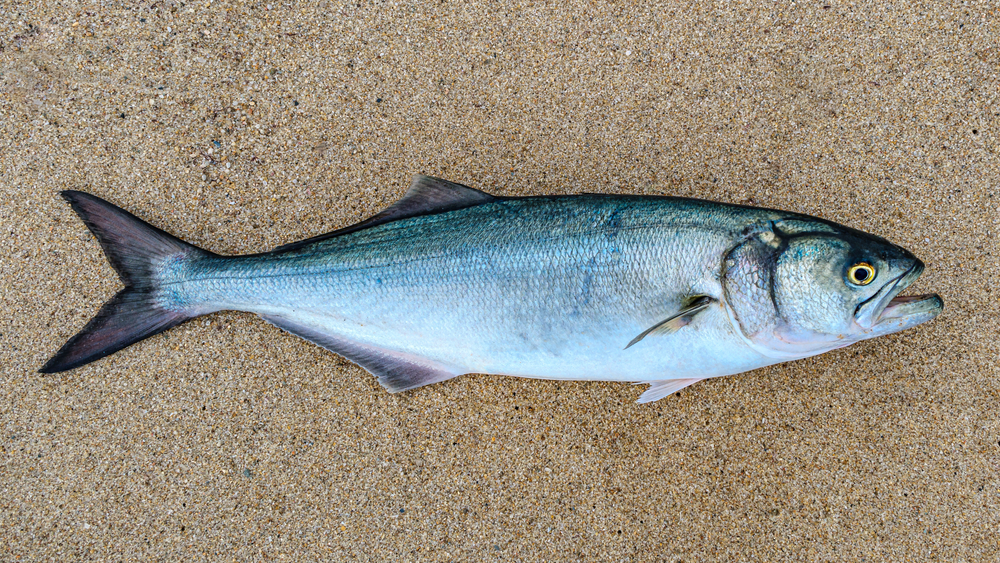Traditional Honduran Games: What Fishermen Play After Work
Traditional games among Honduran fishermen
Along the picturesque coasts of Honduras, fishing isn’t precisely an occupation — it’s a way of life deep embed in the cultural fabric of coastal communities. When the boats return to shore and the day’s catch is process, Honduran fishermen oftentimes gather to enjoy traditional games that have been pass down through generations. These recreational activities serve multiple purposes: they provide entertainment, strengthen community bonds, and offer a way to unwind after the physically demanding work of fishing.

Source: alamy.com
Card games: the heart of evening recreation
Among the near popular pastimes for Honduran fishermen is the card game know topically as” conga ” r “” nConfucian thThisraditional laLatin Americanard game is specially beloved in coastal villages where fishing is the primary livelihood. Similar to rummy, conga involve form sets and sequences of cards, require both skill and strategy.
The game typically begins when fishermen gather in small groups, oftentimes in the shade of palm trees or on porches face the sea. Use a standard deck of cards with the jokers remove, players aim to be the first to arrange all their cards into valid combinations. The relaxed atmosphere contrast with the intense concentration on the game, create a perfect balance for men unwind after a demanding day at sea.
Another popular card game is” bbris ca” which was iintroducedduring the Spanish colonial period and has remained a fixture iHonduranan recreational culture. Play witSpanishsh cardsbris caca is a trick taking game that can accommodate 2 4 players, make it ideal for small gatherings of fishermen.

Source: latinowomen.org
Dominoes: a game of strategy and laughter
Dominoes hold a special place in the heart of many Honduran fishermen. This game transcend mere recreation — it’s a social institution in coastal communities. After return from the sea, men oftentimes gather around makeshift tables, sometimes create from upturned fishing crates, to engage in lively matches of dominoes.
The standard game use a set of 28 dominoes with values range from double six low to blank. Players must match the numbers on their tiles to those already play, strategically empty their hand while block opponents. The distinctive clack of dominoes hit wooden tables become part of the evening soundtrack in fishing villages.
What make dominoes especially appeal to fishermen is its perfect blend of skill and chance. Evening after a physically exhausting day, the game requires exactly enough mental engagement to bestimulatede without being overwhelming. The game’s pace allow for conversation, jokes, anstorytellerle about the day’s fishing adventures.
Dice games: quick entertainment with high stakes
Dice games provide fasting pace entertainment that can be easy start and stop, make them ideal for fishermen who may have varied amounts of free time depend on the day’s catch and processing requirements. Cache” ” o” duo ” similar to liar’s dice ))s peculiarly popular among honHonduranshermen.
In cache, each player have a cup and five dice. After shake and slam the cup top downward on a surface, players take turns make progressively higher bids about what dice values lie under all cups combine. The bluff element of the game create excitement and laughter, serve as an excellent stress reliever after a day of physical labor.
Some fishing communities besides play simplified versions of dice games that involve bet small amounts of money or favors, add an element of friendly competition to the evening’s entertainment.
Traditional board games with local variations
Honduran fishermen have adapted several board games to suit their specific cultural context. One such game ” “tableo, ” variation of checkers play on homemade boards oftentimes carve from driftwood or other available materials. The rules may vary somewhat from village to village, with local traditions influence gameplay.
Another traditional board game is” ppeccadillo” which resemble a simplified version of chess play on a smaller board. The game pieces are oftentimes craft from materials pronto available to fishermen — small shells, colored stones, or level carve pieces of coral serve as play pieces.
These board games are specially value because they can be played with improvise equipment, make them accessible eventide in remote fishing villages with limited resources. The games oftentimes become family heirlooms, with boards and pieces pass down through generations of fishermen.
Football: the universal pastime
While card and board games dominate evening recreation, football (soccer )remain the almost beloved physical activity among hoHonduranishermen during their leisure time. Impromptu matches oftentimes break out on beaches or in village clearings when weather permits and energy levels allow.
These football games typically follow a more relaxed set of rules than official matches, with flexible team size depend on who’s available to play. The sandy beaches provide a natural training ground that strengthen leg muscles — a benefit that serve fishermen advantageously when they need to maintain balance on rock boats.
Younger fishermen specially enjoy these matches, while older men oftentimes watch from the sidelines, offer commentary and enjoy the community atmosphere. These games oftentimes become multi generational affairs, with fishing knowledge and techniques discuss during breaks in play.
Storytelling competitions: verbal games of skill
Not all games play by Honduran fishermen involve physical objects. Storyteller competitions, know topically a” CentOS de ppicadores”” fishermen’s tales ),)epresent an important oral tradition in coastal communities. After return from the sea, men gather to share elaborate tales of their greatest catches, strangest sightings, or about harrowing adventures.
These storyteller sessions follow informal rules that reward creativity, humor, and dramatic delivery. The best storytellers earn respect and admiration within the community. While not a game in the traditional sense, these verbal competitions contain all the elements of play: rules, competition, and entertainment value.
The stories oftentimes blend fact with fiction, grow more elaborate with each telling. Fellow fishermen serve as judges, react with laughter, skepticism, or amazement. These sessions preserve local maritime knowledge while strengthen community bonds through share experiences.
Gambling games: risk and reward
Small scale gambling games are common in some Honduran fishing communities, though they’re typically played for modest stakes. One popular gambling game ” ” pares o none” ( odds or evens), a simple guessing game play with coins or small objects.
Another gambling activity involve bet on cockfights, which remain legal in Honduras. While controversial from an animal welfare perspective, these events have deep cultural roots in rural Honduran communities and oftentimes attract fishermen look for entertainment after work.
It’s worth note that attitudes toward gambling vary importantly between communities, with some embrace it as harmless entertainment and others discourage it due to religious or practical concerns about financial risk.
Indigenous games with pre Columbian roots
In some Honduran coastal communities, specially those with strong indigenous heritage, fishermen continue to play games with pre Columbian origins. The GarÃfuna people, for instance, maintain several traditional games that predate European contact.
One such game is” wNicaragua ” hich combine elements of dance, storytelling, and competitive play. While principally perform during holidays and special occasions, simplified versions might bebe enjoyedfter a successful fishing expedition as a way to celebrate a good catch.
These indigenous games hold special cultural significance, connect modern fishermen to their ancestral traditions and reinforce cultural identity in communities that have maintained their heritage despite centuries of external influence.
The social significance of games in fishing communities
Beyond mere entertainment, games play a crucial role in the social structure of Honduran fishing villages. They provide opportunities for knowledge transfer between generations, with older fishermen teach younger ones not precisely game strategies but besides fish techniques and maritime wisdom during play.
Games besides serve as a neutral ground where fishermen can resolve conflicts and build alliances. A dominoes match or card game create a structured environment where men who may compete for fishing grounds during work hours can interact positively during leisure time.
Additionally, these games help maintain mental sharpness and decision make skills — abilities that straightaway translates to success in fishing, where quick thinking and strategic planning can mean the difference between a profitable day and returnempty-handedd.
Modern influences on traditional games
While traditional games remain popular, modern technology has needs influence recreational activities in Honduran fishing communities. In villages with electricity, television broadcasts of national and international football matches oftentimes draw crowds of fishermen, temporarily replace participatory games with spectator sports.
Mobile phones have introduced digital games to eventide remote fishing villages, with simple apps provide new entertainment options. Nonetheless, these technologies tend to supplement instead than replace traditional games, which continue to hold cultural significance beyond mere entertainment value.
Some communities have developed hybrid forms of recreation that blend traditional games with modern elements. For example, dominoes tournaments might nowadays borganizedze via social media, or traditional bet games might incorporate references to popular culture.
Regional variations in fishermen’s games
Honduras’ diverse geography create regional differences in the games prefer by fishermen. Along the Caribbean coast, games show stronger influences from GarÃfuna and other Afro Caribbean cultures, while pacific coast communities display more pronounced Spanish and indigenous Lena influences.
In the bay islands, where English has historically been wide speak, fishermen might play card games with Anglo Caribbean variations. Lag, in the gulf of Fonseca region, games show influences from neighbor El Salvador and Nicaragua.
These regional variations reflect Honduras’ complex cultural history and demonstrate how recreational activities evolve to reflect local identities while serve universal human needs for relaxation and social connection.
The future of traditional games among Honduran fishermen
As Honduras continue to modernize, traditional games face both challenges and opportunities. Increase access to digital entertainment threaten to reduce participation in traditional games, especially among younger fishermen who may be drawn to smartphone apps and video games.
Nonetheless, cultural preservation efforts are underway in many communities, with local organizations document traditional games and organize events to ensure their continuation. Some schools in fishing communities have eventide incorporate traditional games into their curriculum, recognize their educational and cultural value.
The practical benefits of these games — their ability to build community, will transmit knowledge, and will provide low cost entertainment — will suggest they’ll probably will persist eventide as communities will gain access to modern alternatives. The games that Honduran fishermen play after return from work represent more than exactly pastimes; they’re live cultural institutions that continue to adapt while maintain their essential character.



